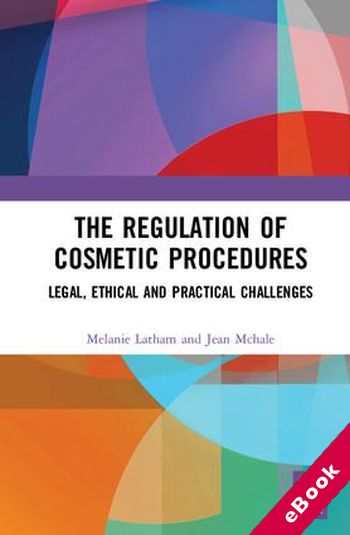
The device(s) you use to access the eBook content must be authorized with an Adobe ID before you download the product otherwise it will fail to register correctly.
For further information see https://www.wildy.com/ebook-formats
Once the order is confirmed an automated e-mail will be sent to you to allow you to download the eBook.
All eBooks are supplied firm sale and cannot be returned. If you believe there is a fault with your eBook then contact us on ebooks@wildy.com and we will help in resolving the issue. This does not affect your statutory rights.
This book examines the ethical and regulatory debates surrounding the rise of the cosmetic procedures industry.
In the past, cosmetic procedures were often seen as limited to a small number of wealthy older women. Today, such procedures have gone mainstream, partly facilitated by the rise of "non-invasive" techniques, such as the use of Botox and Dermal Fillers. While still a business dominated by the female consumer, there are also an increasing number of males undertaking cosmetic procedures as social expectations around appearance and ageing are challenged. At the same time, the rapid expansion of this business, and the incoherent, diverse approach to its regulation, have given rise to concern. It has been seen as a "Wild West". If cosmetic procedures go wrong, such procedures give rise to real risks of harm. This book examines the historical backdrop, current practice and risks associated with cosmetic procedures. It discusses the ethical and regulatory challenges for this area. It also examines the current legal frameworks concerning people, practitioners and products in the UK. The book also draws lessons from regulatory approaches in other jurisdictions with particular reference to the United States, Brazil and France. It then sets out a legal and regulatory framework that might better protect and empower the cosmetic consumer, now and in the future.
The book is likely to be of particular interest to those working in the areas of health and medical law, socio-legal studies and political science.